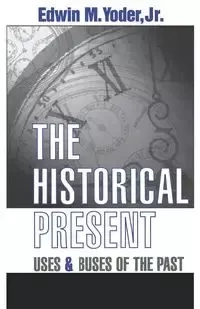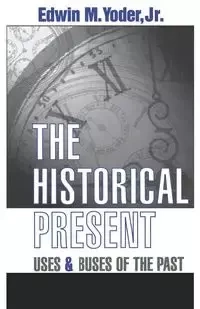The Historical Present - Yoder Edwin M. Jr.
The Historical Present - Yoder Edwin M. Jr.
- Uses and Abuses of the Past
EAN: 9781604731729
Symbol
537FBB03527KS
Autorzy
Yoder Edwin M. Jr.
Rok wydania
1997
Elementy
228
Oprawa
Miekka
Format
14.0x21.6cm
Język
angielski

Bez ryzyka
14 dni na łatwy zwrot

Szeroki asortyment
ponad milion pozycji

Niskie ceny i rabaty
nawet do 50% każdego dnia
Niepotwierdzona zakupem
Ocena: /5
Symbol
537FBB03527KS
Kod producenta
9781604731729
Autorzy
Yoder Edwin M. Jr.
Rok wydania
1997
Elementy
228
Oprawa
Miekka
Format
14.0x21.6cm
Język
angielski

A Pulitzer Prize-winning journalist's view of how the study of history is our key to understanding the present
Although the American republic is a child of history, Americans are prone to historical forgetfulness. They tend to think of themselves as future-oriented. Even when history unites with American popular culture, it is often in the form of "docudrama," conspiracy theories, or other varieties of pseudohistory.
Ed Yoder's exploration of the centrality of history in our lives blends an experienced journalist's zest for current trends with a lifelong interest in American and European history. In this book of linked essays, he writes about topics as diverse as the 1995 controversy over the Enola Gay exhibit at the Air and Space Museum in Washington, Barbara Tuchman's success as a popular historian, the historical reputations of Lincoln and Jefferson, the fluctuations of presidential rankings, the revival of nationalist wars and rivalries in Eastern Europe, the politically charged dispute over the significance of Columbus's voyages on their 500th anniversary, the light thrown by William Faulkner's novels on the dilemma of black families, and the argument over "original intent" in constitutional interpretation.
Yoder shows, with an abundance of specific examples, how essential collective memory is to social understanding and self-knowledge. He argues that history, far from being a dry accumulation of fact, is a fascinating inquiry into "transformations," how, for example, a thinly settled strip of Atlantic seaboard colonies became a nation, at first gradually and then in the revolutionary spasm of the summer of 1776.
Yoder also explores the puzzling American resistance to the study of the past, suggesting that Americans avoid history in part because they have luckily escaped the tragic calamities of older cultures. The myths of American innocence and exemption, he argues, have fostered an illusion that history as the teacher of vital lessons can be ignored, although it is actually the very matrix of the way we understand ourselves in the present.
Edwin M. Yoder, Jr. was for fifteen years a columnist for The Washington Post Writers Group and is a professor of journalism and humanities at Washington and Lee University. In 1979 he was awarded a Pulitzer Prize for editorial writing.
EAN: 9781604731729
EAN: 9781604731729
Niepotwierdzona zakupem
Ocena: /5
Zapytaj o produkt
Niepotwierdzona zakupem
Ocena: /5
Napisz swoją opinię

